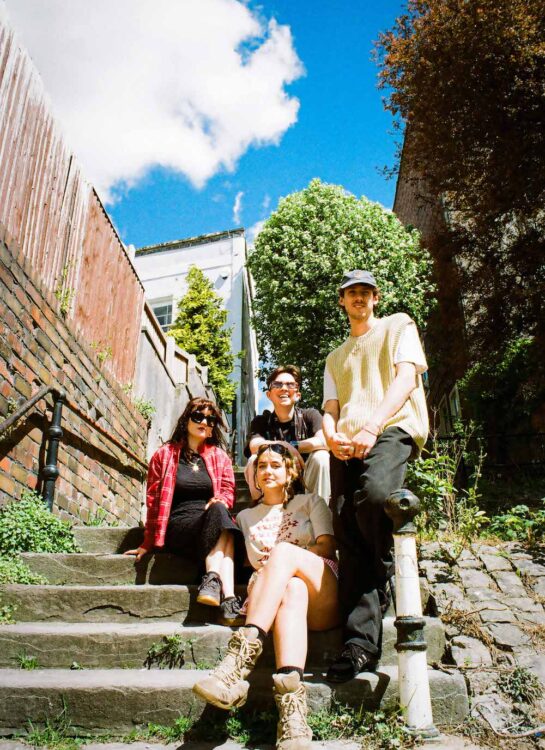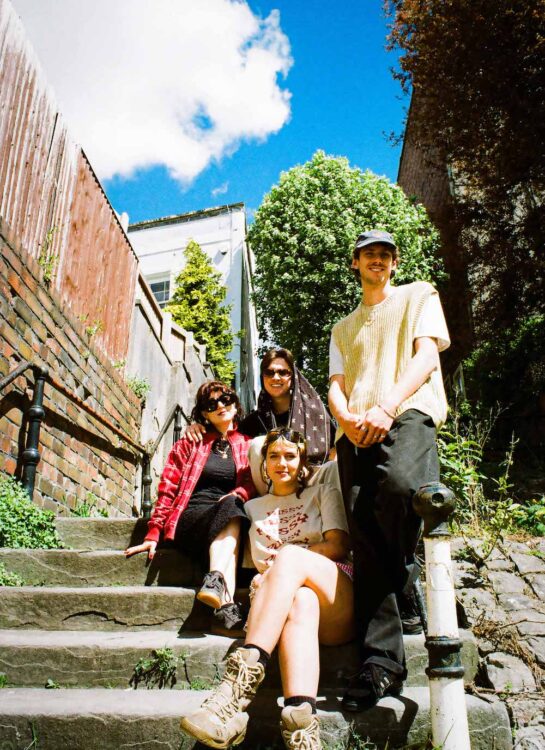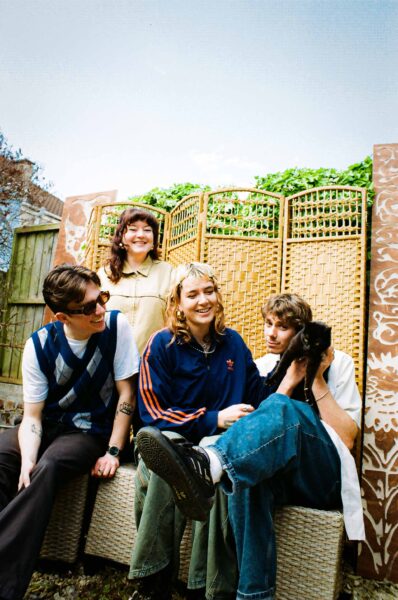In collaboration with

- Words Kitty Robson
In partnership with Studio Monkey Shoulder, pioneering UK community Brakery talk through everything from how to book rising artists and build a core community.
Brakery might have started as a one-off club night in Brighton, but a trip to Portugal turned a casual idea into something much bigger. Inspired by multidisciplinary spaces like Lisbon’s Crack Kids, the Bristol-based collective has grown into a grassroots network of artists, DJs and curators who centre collaboration across club culture, visual art, and community organising. Whether it’s a panel talk, gallery night, or their genre-spanning monthly sessions at Analogue Lounge, Brakery is carving space for emerging voices.
In this How To Guide, Brakery shares what they’ve learned from years of doing it themselves. From navigating venue bookings and curating line-ups that reflect their values, to promoting events on tight budgets and ensuring safe, inclusive environments, the collective offers a grounded, practical perspective on building something lasting without waiting for permission.
With support from Studio Monkey Shoulder – the initiative championing grassroots music – this guide sheds light on the realities of running DIY shows in 2025: the resourcefulness it demands, the networks it thrives on, and the quiet power of showing up for your scene. Whether you’re booking your first event or building out a collective, Brakery’s approach is proof that the most meaningful culture often starts small.
How did Brakery get started?
It started out as a club night at a venue in Brighton a couple of us used to work at called Komedia. It was meant to be a one-off night for our friends, but just before it happened, we went on holiday to Lisbon. We got inspired by the city, specifically by Crack Kids, which is a cafe, tattoo studio, exhibition space and graffiti shop. It was in this multidisciplinary space that the penny dropped that we could turn Brakery into more than just a night, it could be a collective that allows us all to work and explore our own creative ideas and projects. Everything sort of came naturally after that. We’re still working on ideas that we came up with on that holiday 3 years ago.
How do you go about finding and securing venues for DIY shows?
In regards to finding, word of mouth mainly, chatting to people and making sure that you are going out and actively taking part of the scene you want to be involved in. Always making an effort to check out new spots that pop up, whether it’s a Hi-fi bar or community space. Securing is the hard part. Times are financially difficult at the moment and small venues do feel that the most, so it’s understandable that they can be hesitant to take you on if you’re starting out. Curating a line up that makes sense for the venue is important and having a clear reason in your head why you’ve chosen that space and what will make it work there. Don’t be afraid to think outside of established spaces, so many good dances were started in unconventional spots.
What tips do you have for booking artists or talent who align with your DIY ethos?
Some great advice we received is to focus on building trust in your audience more than booking big sell out names. It’s easy to get stuck in a demoralising back and forth with agents trying to up fees, so just book your mate, the local dj, a smaller name, it makes bookings so much more enjoyable. You might have to promote harder, but if your audience’s trust you to throw a good party regardless then you’re in a really great place to support and promote more grassroots artists.


With shows ranging from vinyl-led open jams to B2B DJ sets and visual art collaborations, how do you find and select artists/creatives to bring the vibes that Brakery is known for?
Our monthly night Analogue Lounge with SpaceJams is probably the best example of this, the full team of collaborators makes up 15 people some of the time. With each person bringing something different to the table. We’re lucky enough to have so many talented creatives around us in Bristol, that’s one of the perks of living in this city. So more often than a case of selecting people, it comes down to who in our network of friends is suited to the project in mind.
How do you approach making sure your shows are safe and inclusive spaces?
I think the most important one for us is venue choice. As a small promoter, you’re only using the space for a night or two. So, making sure you’re working with a space that you feel safe in yourself. Somewhere where you know the security are there to help people and work alongside you and the staff. Good Night Out Campaign are a great place to start if you are interested in learning more. It’s an area we are still educating ourselves on.
What are some effective low-budget promotion strategies you’ve used to get people to your shows?
Try to do your best to explore the scene that already exists, meet people, make friends and contacts. In Bristol, there are whole networks of people who love, work in, or are invested in the same stuff we are, so make sure those people know if you’ve got something coming up – a good chinwag goes a long way. Find a visual artist that can help you build a brand identity, we have an in house artist and graphic designer who are the backbone of our visual aesthetic. It makes a big difference if people can tell what the night is straight away. Meta ads are fickle, but effective. It loathes me to say this as it’s super boring, but collect as many data pools as you can, ask the venue/headliner for their meta audience information. You can spend as little as you want on Meta ads, so they can be helpful if you have a small budget. It also feels ironic saying this as we never use it ourselves, but TikTok is free and works. Someone posted a video of Analogue Lounge that went viral, and that low-quality 10-second video sold more tickets than anything else we’d done combined. Just one to bear in mind.

How do you handle logistics like equipment, sound, and setup in DIY contexts?
It sort of has to be a beg, borrow and steal mindset every time when you’re working within a DIY context. Just because you don’t have the budget to build the set you want, doesn’t mean there isn’t a Facebook marketplace alternative. You inevitably always have to ask your friends for favours or to borrow equipment, which is fine, as long as you know you’re there to get them back when they need it. Only we’d say not to compromise on is the sound. Just spend the money and get a good system, because what’s the point of throwing an event if you’re not going to have good speakers!
How do you make sure artists and organisers are fairly compensated even on tight budgets?
This one will forever be a challenge. And is honestly still something we are figuring out. We are massively lucky to have people who are willing to help us out in doing jobs for less than their ideal wage. You just have to make sure that on those rare occasions when your budget is big enough, you are compensating your friends extra. We all work full time and therefore use any money generated to put back into other projects.
What advice would you give someone hosting their very first DIY show?
Just go for it. You don’t need a big budget or a huge headliner. We managed to do 14 events across 3 different cities before we ever booked an actual headliner that wasn’t just one of our mates. Also, keep it small, it’s better to keep packing out a 50-cap venue than it is to sell 50 tickets at a 200-cap venue. Your branding, ethos and goals will continuously change over time, so don’t get too caught up in trying to figure everything out before you start, just try to make sure you adapt and learn something from every event.
What’s next for Brakery?
Our main focus in the last year or so has been to branch out into different areas within the umbrella of what we do. Becoming a label and releasing the music of people in Bristol who make up the scenes we are a part of. We’re working on a book to document the people who make Bristol such an interesting and varied ecosystem to be a part of. There are plans in the works to use the Analogue Lounge format to run a youth program and maybe even a festival stage. As well as taking a less-is-more approach to our Brakery events. Anything that feels like a logical step for us, it’s difficult to say at this point.

